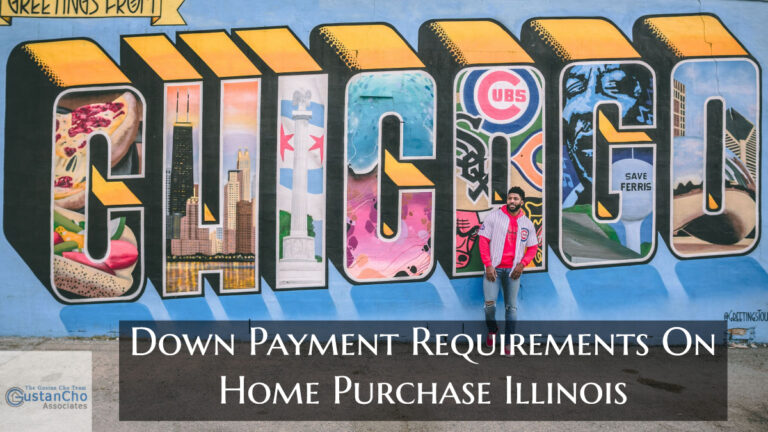This Article Is About Choosing Conventional Versus FHA Loan Is Necessary
Choosing Between Conventional Versus FHA Loan? What is the difference between Choosing Conventional Versus FHA Loan? FHA Loans are by far the most popular loans today.
Here are the basics of FHA Loans:
- FHA Loans are residential mortgage loans that are originated by lenders
- It is guaranteed by HUD, which is the parent of FHA (the Federal Housing Administration)
- Many Borrowers believe FHA is a government agency that lends on FHA Loans
- HUD, the parent of FHA, does not originate, process, underwrite, nor fund FHA Loans
- The role and purpose of HUD is to insure private FHA-approved lenders when their borrowers default on their FHA Loans
- In order for HUD to insure approved lenders, borrowers need to meet FHA Lending Guidelines
- If borrowers do not meet any aspect of HUD Guidelines and the lender makes a mistake, FHA will not insure the FHA Loan that they originated
- Lenders cannot resell the FHA Loan on the secondary market
- This is because no institutional investor will purchase an FHA Loan that was not originated and funded correctly
- This is the main reason why lenders can be nit-pickers in asking so many questions during the mortgage process
Conventional loans are not insured and/or guaranteed by any government agency. However, Conventional loans are often referred to as conforming loans because they need to conform to Fannie Mae and/or Freddie Mac agency guidelines. Lenders use their warehouse line of credit to fund conventional loans. After the loans are closed and funded,
Choosing Conventional Loans Versus FHA Loan And Mortgage Rates
Mortgage rates on FHA loans are lower than on conventional loans. This holds true even when borrowers only put a 3.5% down payment.
This is because the risk tolerance to lenders is low as a result of the guarantee by HUD:
- Conventional loans are called conforming loans
- This is because they need to conform to Fannie Mae and/or Freddie Mac lending guidelines
- Conventional Loans need to conform to Fannie/Freddie Guidelines in order for lenders to resell the conventional loan to Fannie and/or Freddie secondary markets
- If the lender does not conform to Fannie Mae/Freddie Mac standards, Fannie/Freddie will not purchase the loan
- Lenders use their own funds from warehouse lines of credit to originally fund the loan
- Then, lenders package up all of the loans they fund and resell them to Fannie/Freddie
- This is done so that they can relieve their warehouse lines of credit and reuse them to originate and fund more loans
In a way, this process is like using a credit card to purchase something. Then reselling that merchandise for a profit and paying off your credit card balance so you can go and purchase more items and repeat the process all over again.
Case Scenario In Choosing Conventional Versus FHA Loan
Let’s use some numbers to illustrate this process better. To qualify for a 3.5% down payment home purchase FHA Loan, the minimum credit score required is 580 FICO. HUD has much more lenient lending requirements than Fannie Mae’s and Freddie Mac’s conventional loans. Conventional Loans have 620 minimum credit score requirements. The four-year waiting period after Chapter 7 on conventional versus 2-year on FHA. Income Based Repayment is allowed on conventional loans but not on FHA Loans.
Benefits Choosing Conventional Versus FHA Loan Is Better
A home buyer has a 3.5% minimum down payment for home buyers with at least a 580 FICO credit score. With conventional loans, minimum down payment is 3% down for first-time homebuyers. Or 5% down for those who owned a home in the previous 3 years. The minimum credit score to qualify for a conventional loan is 620 FICO. Homebuyers with credit scores between 500 and 580 FICO can qualify for FHA loans. However, a 10% down payment is required.
DTI On Choosing Conventional Versus FHA Loan

The maximum front-end debt-to-income ratio is capped at 46.9% DTI and the back-end debt-to-income ratio is capped at 56.9% DTI for borrowers with at least a 620 FICO credit score. Maximum debt-to-income ratios to qualify for conventional loans are capped at 50% DTI. There is no front-end debt to income ratio requirement.
43% DTI Guidelines On Under 620 Credit Scores
Outstanding collection accounts do not have to be paid. Borrowers can qualify for an FHA loan without having to pay off outstanding collection accounts and outstanding charge-off accounts. Many times, borrowers are told that they do not qualify. This is because their credit scores are not 640 FICO. Lenders with overlays require borrowers to pay off all of their outstanding collection accounts and judgments. Any lender can have higher lending standards that surpass the minimum HUD Guidelines. These additional requirements are called overlays.
Borrowers may not qualify with a lender that has higher standards than FHA but can qualify with lenders with no overlays. Google “FHA Lenders With No Lender Overlays” to find lenders with no overlays. Fannie Mae and/or Freddie Mac have similar guidelines on collection accounts and/or charge-off accounts. However, any outstanding account that is past due needs to become current in order to qualify for a conventional loan. Conventional loans are somewhat tougher when it comes to outstanding collection accounts than FHA loans. This is because they are not insured by a government entity like HUD.
Any home buyer who puts in less than a 20% down payment will require private mortgage insurance. The private mortgage insurance company may require additional requirements in order for them to insure the conventional loan.
Waiting Period After Bankruptcy With Choosing Conventional Versus FHA Loan
There is a two-year waiting period to qualify for an FHA loan after a Chapter 7 bankruptcy. With conventional loans, the waiting period is four years after the bankruptcy discharge date. Borrowers can qualify for an FHA loan one year into a Chapter 13 bankruptcy repayment plan with the approval of the bankruptcy trustee. There is no waiting period to qualify for an FHA loan after a Chapter 13 bankruptcy discharge date. There is a two-year waiting period to qualify for a conventional loan after a Chapter 13 Bankruptcy discharged date. There is a four-year waiting period after the Chapter 13 dismissal date to qualify on conforming loans.
Mortgage After Short Sale Versus Foreclosure With Choosing Conventional Versus FHA Loan

Homebuyers can buy another property sooner with a short sale and/or deed in lieu of foreclosure with a conventional loan.
Choosing Conventional Versus FHA Loan After Housing Event and/or Bankruptcy:
- The waiting period after a deed in lieu and/or short sale is different: 4 years versus 7 years’ waiting period after a foreclosure to qualify for a conventional loan
- There is a three-year waiting period to qualify for an FHA loan after a foreclosure, a deed in lieu of foreclosure, or a short sale
- There is a seven-year waiting period to qualify for a conventional loan after a foreclosure
- There is a four-year waiting period to qualify for a conventional loan after a deed in lieu and/or short sale
- HUD treats foreclosure, deed in lieu, and short sale the same and the waiting periods are all three years to qualify
However, Fannie Mae/Freddie Mac have different waiting period requirements after foreclosure, which is seven years, and four years after a deed in lieu of foreclosure and/or short sale.
Mortgage Part Of Bankruptcy On Conventional Loans
Borrowers with prior mortgage included in Chapter 7 bankruptcy, there is a three-year mandatory waiting period from the recorded date of foreclosure and/or sheriff’s sale on FHA Loans. This holds true even though the mortgage loan balance has been discharged in Chapter 7 bankruptcy. That is why there is a huge advantage of choosing conventional loans versus FHA loans. The three-year waiting period clock DOES NOT START until the deed to the property has been transferred out of your name.
With conventional loans, this waiting period is four years after the discharge date. There are many instances where borrowers will not qualify for an FHA loan but will qualify for a conventional loan. This is due to this conventional loan guideline on the mortgage included in Chapter 7 bankruptcy.
For further information on qualifying for a conventional loan with a prior mortgage included in Chapter 7 Bankruptcy contact us. Gustan Cho Associates will qualify borrowers for Conventional Loans with no overlays. Gustan Cho Associates is available 7 days a week, weekends, holidays to take your mortgage inquiries and make the dream of homeownership become a reality. Call or text us at 800-900-8569 or email us at gcho@gustancho.com.
This BLOG On Choosing Conventional Versus FHA Loan Was UPDATED On September 14th, 2021.





